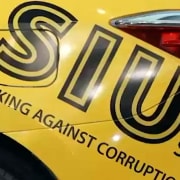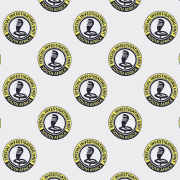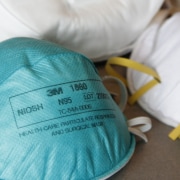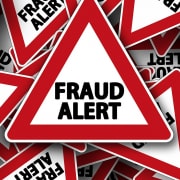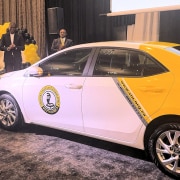|
Getting your Trinity Audio player ready...
|
Two years ago to the month Corruption Watch released its detailed research report on water sector corruption. Titled Money down the Drain: corruption in South Africa’s water sector, the report was commissioned by the organisation and the Water Integrity Network and authored by Mike Muller, former director-general of the then Department of Water Affairs and Forestry.
One of the cases profiled on the pages of the report involved two contracts for software services, including licenses, that the Department of Water and Sanitation (DWS) awarded irregularly to German multinational software company SAP.
Now, the Special Tribunal, operating under the auspices of the Special Investigating Unit (SIU), has ordered SAP to repay DWS for some of the money it took under those irregular circumstances. The repayment amount comes to just under half of the total money awarded – at least R413-million, out of R1.036-billion.
The tribunal also declared the two contracts constitutionally invalid, and set them aside. The DWS may not use any of the software licenced under the agreements, which were concluded in 2015 and 2016.
“The SIU confronted DWS and SAP with evidence of wrongdoing and by agreement, the SIU together with DWS and SAP, declared the contracts invalid and unlawful. The agreement was made the order of the Special Tribunal,” said the DWS and SIU in a joint statement released yesterday.
The tribunal has also ordered SAP to repay R263-million within five days of the date of the order, “with any remainder to be paid after the Special Tribunal’s determination of whether any further amount should be deducted from the amount due”.
The order sends a “strong message to officials and companies doing business with the State that collusion and unethical business practice will not be rewarded,” the two entities stated.
It follows a lengthy investigation into the contracts, mandated by a proclamation issued in September 2018 by President Cyril Ramaphosa. The president ordered the SIU to investigate allegations that the procurement of, or contracting for, information technology-related services from SAP had not been fair, competitive, transparent, equitable or cost-effective, and that legislation, guidelines or policies had been flouted.
Alleged costs involved were the purchasing of SAP licences for more than R500-million, and the payment of R35 million in kickbacks. Mere months after its investigation began, the SIU team had already found that no needs analysis was conducted, nor was there budget for the purchase of the SAP licences.
Furthermore, “the State Technology Information Agency (SITA) was not consulted as was required for such purchases, and in fact SITA advised the DWS against proceeding with this contract,” the SIU reported to Parliament in November 2018.
The SIU had also, in the meantime, made disciplinary referrals to DWS against two senior officials. “The SIU was informed that DC against one senior official has been concluded and judgment is expected within this week, while the DWS is considering disciplinary action against the other official,” noted the joint statement.
The SIU has also referred evidence pointing towards criminality to the National Prosecuting Authority, Assets Forfeiture Unit, and South African Revenue Service, in accordance with the SIU Act.
Background on the SAP saga
Money down the Drain reported that under former minister Nomvula Mokonyane, the DWS had concluded a five-year contract worth R950-million for software services from SAP. This was despite Mpho Mofokeng, one of the DWS’s two chief financial offiers, warning in a letter to former director-general Margaret-Ann Diedricks that:
- The department had already acquired ‘unlimited’ SAP licences for R178-million in 2013 and didn’t need more;
- The department’s own ‘water trading entity’ which was supposed to use the SAP system had not been consulted;
- The water boards that were supposed to use the system had not been consulted, even though they were likely using different software packages;
- Money to pay for the SAP licences was simply not available; and
- The procurement of the licences had not been planned for.
This information came from an Auditor-General of South Africa (AGSA) report, which included further detail about how the minister and certain officials had simply ignored the department’s and government’s own structures and procedures. On the basis of that evidence, the AGSA had no difficulty in concluding that the acquisition was irregular.
Asked about the allegations back in 2018, DWS spokesman Mlimandlela Ndamase said that “… the acquisition of SAP was approved by the executive authority (Mokonyane) and was duly finalised by the Accounting Officer”.
Later reports suggested that action had been taken to recover payments from SAP but there was no information on action taken against those responsible.
“While, in this case, the fingers point directly at Mokonyane, it is not often noted that she was simply following the example of her predecessors, Buyelwa Sonjica and the late Edna Molewa,” the water sector corruption report stated.
“When Molewa’s DG Maxwell Sirenya refused to authorise an IT contract that she wanted, he was fired. Sonjica had similarly dismissed DG Pam Yako over allegations (most of which were rejected by the tribunal that finally heard them when she appealed her dismissal), that she had irregularly favoured a particular IT company. The pattern of abuse of specialised services such as IT is one characteristic of corruption in the water sector in which business has actively facilitated misconduct.”

